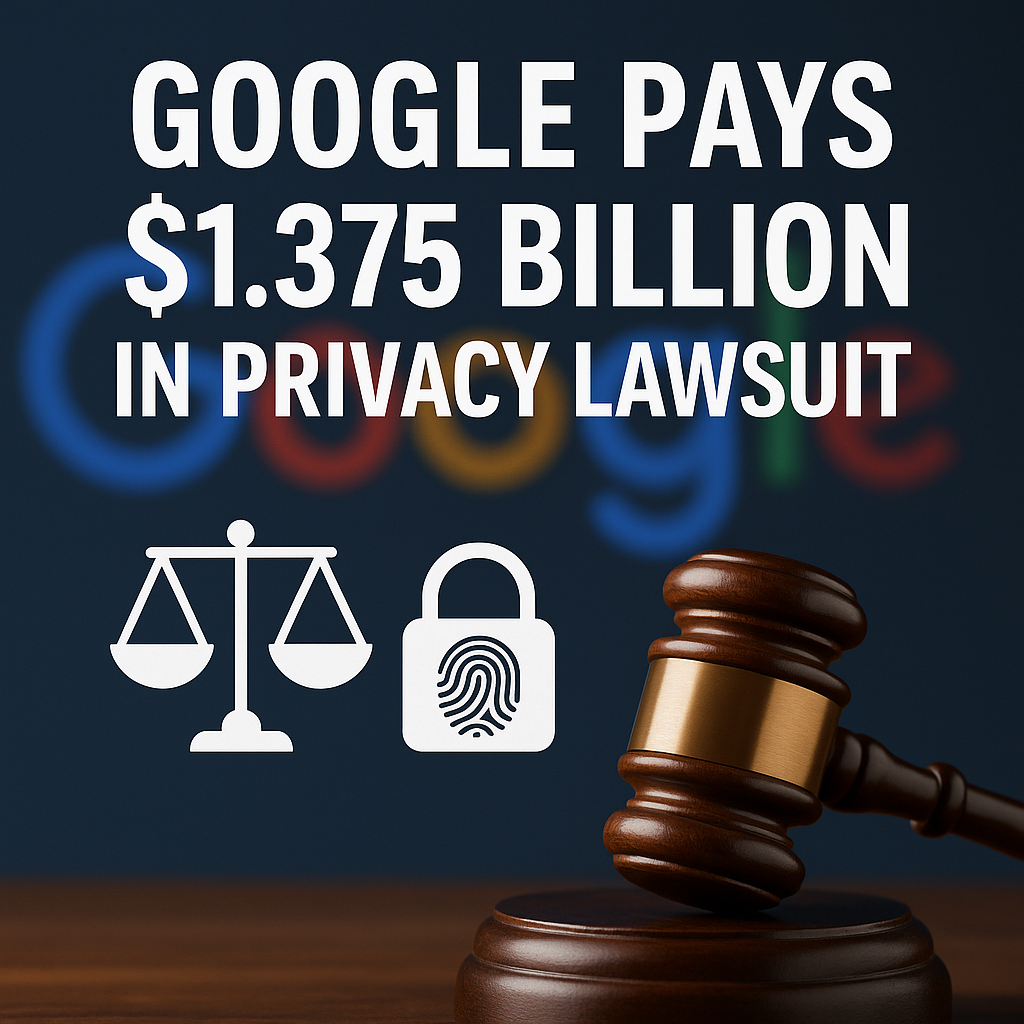In a landmark legal development, Google has agreed to pay a $1.375 billion settlement to the state of Texas over allegations of widespread privacy violations. This case marks the largest data privacy settlement ever secured by a single U.S. state, significantly surpassing earlier cases involving other tech giants.
Background of the Lawsuit
The lawsuit was initiated in 2022 by Texas Attorney General Ken Paxton. It accused Google of unlawfully tracking users’ private data, including geolocation, incognito browsing history, and biometric information, even after users explicitly opted out of such tracking. According to court filings, Google continued to gather sensitive information without clear user consent, violating state-level privacy laws.
Scope of the Alleged Violations
The Attorney General’s office highlighted several troubling practices:
- Tracking users’ locations via GPS even when “Location History” was turned off
- Recording activity in “Incognito Mode,” misleading users about private browsing
- Collecting biometric data such as facial and voice prints without clear consent
These allegations drew comparisons to prior controversies faced by tech companies around user transparency and ethical data handling.
Settlement Terms
Under the agreement, Google will pay $1.375 billion to Texas. Notably, the settlement does not require Google to implement additional product changes, as the company claims to have already updated its privacy policies and practices.
This is Google’s third major legal defeat in Texas over two years:
- 2023: $700 million settlement over Android app store competition
- 2022: $391.5 million paid to 40 U.S. states for location tracking violations
Google’s Response
In a statement, a Google spokesperson acknowledged the settlement and reaffirmed the company’s commitment to privacy:
“We’ve long since addressed the product issues referenced in this case and have made significant updates to give users more control over their data.”
However, privacy advocates argue that large settlements without structural changes may not be sufficient deterrents against future abuses.
Implications for Investors
The $1.375 billion settlement, while substantial, represents only a small fraction of Alphabet Inc.’s (Google’s parent company) financial reserves. As of Q1 2025, Alphabet reported cash and short-term investments totaling $120.8 billion. Thus, the fine constitutes roughly 1.14% of its cash holdings.
However, investor concern stems less from the immediate financial impact and more from reputational and regulatory risks. Following the announcement:
- Alphabet’s stock (NASDAQ: GOOGL) fell 2.1% intraday on May 9, erasing approximately $30 billion in market capitalization.
- Institutional investors such as Vanguard and BlackRock issued statements urging greater transparency in data governance.
- Market analysts at Morgan Stanley revised Alphabet’s risk rating from “Low” to “Moderate,” citing regulatory volatility.
Investors are now reassessing ESG (Environmental, Social, Governance) metrics and data risk exposure in tech portfolios, signaling a broader shift toward compliance-driven evaluation in high-growth sectors.
Wider Implications for Big Tech
This settlement comes amid increasing legal scrutiny of Big Tech companies in the United States and globally. In a parallel case, Meta (Facebook’s parent company) agreed to a $1.4 billion settlement with Texas over unauthorized biometric data collection.
Legal experts suggest that these landmark cases are signals of a changing regulatory environment where states are becoming more aggressive in holding tech firms accountable for user privacy breaches.
Conclusion
The $1.375 billion settlement with Google underscores a broader societal demand for digital privacy and accountability. As data continues to drive the digital economy, the actions of regulators and legal institutions will likely shape the future of user rights and corporate responsibility.
For consumers, the case serves as a reminder to be vigilant about data sharing and privacy settings. For tech companies, it reaffirms that opaque practices carry real legal and financial consequences.
